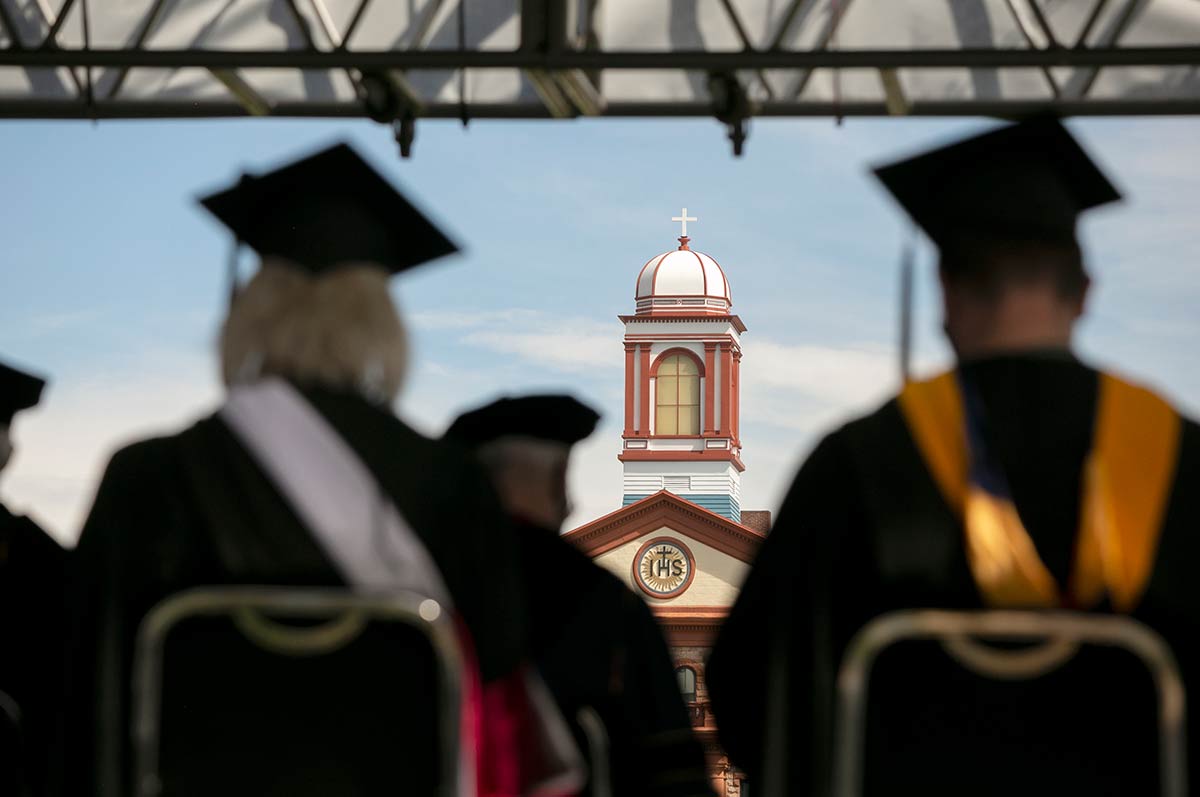Regis University Appoints First Lay and Latino President in School History
Regis started the new year by making history: On January 1, Salvador Aceves, Ed.D., became the University’s first lay President, and the first of Latino heritage. Aceves brings 37 years’ experience in Jesuit Catholic higher education to the role.
Aceves was born and grew up in San Francisco, where he met his future wife in the fifth grade, and where he earned a bachelor’s degree in accounting from the University of San Francisco (USF). During a successful private-sector career in tax accounting, Aceves said he “developed a growing appreciation for helping clients interpret the law. This led to a love of teaching and a love for the accounting profession.”
That appreciation led him back to his hometown, where he earned a master’s degree in taxation at Golden Gate University and became a part-time faculty member at USF, where he earned an Ed.D. in education. In 2011, he joined the provost office at Fordham University, then in 2014, came to Regis as a senior vice president and the chief financial officer (CFO).
In his first months as President, Aceves has undertaken the creation of a strategic plan for the University, and has announced four priorities:
- Invite families who already share a commitment to Jesuit Catholic education to support their children as they continue their education at Regis and reach out to community partners to support their employees through a Regis education.
- Announce a significant gift every quarter.
- Support the academic community as it reimagines traditional, post traditional, graduate, and doctoral education that is grounded in our Jesuit Catholic values, is market responsive and financially sustainable.
- Develop a campus culture that empowers the community to make timely
We spoke with Aceves to learn more about his experience and his vision for the future of Regis.
Q: What attracted you to Regis?
At the University of San Francisco, I met Father [John] Fitzgibbons. He joined the university as a vice president and dean, during which time we developed a shared interest in planning and finances, and became friends.
We each later were presented with opportunities at other Jesuit institutions. He went to Marquette, and I went to Fordham, but we remained in touch.
Shortly after becoming President of Regis, he called and said, “My CFO just announced his retirement. Would you be interested in applying for the position?”
I came to campus and interviewed with his team and others. This created my pathway to Regis.
Q: You are the first Latino and the first lay person to serve as the University’s president. How do you view the significance of that?
I value the importance of our Jesuit Catholic identity and am honored to serve as Regis's first lay and first Latino president. The Jesuit Provincial has given me an incredibly important task to lead through our mission. I have been blessed by the wisdom of the Jesuits, who started developing lay leaders in the Jesuit Catholic intellectual tradition. This has deepened my faith and has helped me become a servant-leader and a companion for our colleagues and students in their formative journey.
As a Latino leader, I hope I can inspire fellow Latinos to see themselves in positions that have been historically underrepresented. I also hope I can welcome them into an inclusive community that values their gifts and talents.
Q: You are approaching your ninth anniversary at Regis. In that time, you’ve undoubtedly been able to observe all aspects of the University. What would you say are Regis’ greatest strengths?
Regis is strongest when it embraces a collaborative culture. Regis thrives when our community reflects its commitment to teamwork and mutual respect. We are indeed at our best when we are relational.
Q: What are areas where Regis could improve?
We need to recognize expertise across the institution and empower our colleagues to help us understand the root cause of specific issues and problems, and find and implement solutions.
We also need to embrace a mindset of continuous improvement. This approach will improve and strengthen operations and allow us to support our transformative educational experience.
Q: You have said that a priority will be engaging employers in the community to support employees through a Regis education. Can you describe what you mean by that?
Engaging employers in the community to support employees through a Regis education can be a valuable opportunity to strengthen the relationship between the institution, its students, and the local business community.
By partnering with employers to offer educational benefits such as tuition reimbursement and flexible scheduling, Regis can enhance the career opportunities of its students and demonstrate its commitment to the professional development of a workforce. This can also benefit employers by providing them with skilled and knowledgeable employees. Overall, such partnerships can create a mutually supportive relationship for both Regis and local employers.
Q: Are you enjoying yourself as President?
Absolutely! It is a real privilege and blessing to serve in this role.



